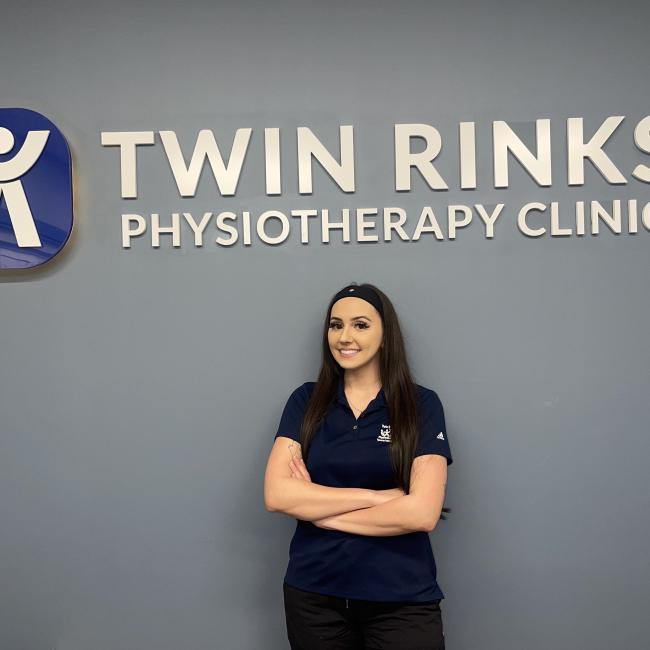Attending an employer information session can not only provide you with valuable information about prospective career paths with exciting companies and their recruiting practices, but also provides an opportunity to make an impression with potential employers and recruiters. Information sessions are particularly valuable early in your degree while exploring career options. Some employers require all potential candidates to attend an information session before applying. SFU hosts several Recruiters on Campus events throughout the year which you’ll want to keep up-to-date on.
Here are 10 tips on preparing for your next information session.
1. Pre-Register
Many employer information sessions are open to all students while others are industry specific. Review the information on the sessions to determine which are best for you to attend. Pre-register as popular sessions will fill up in advance, plus when you pre-register some organizers will share information on their organization, send updates on speakers and preparation tips.
2. Dress to Impress
Even though many information sessions are held in lecture halls, that does not mean you should dress like you’re going to class. Most information sessions have time for networking and question periods, so you want to look professional, but remember that you may be sitting for a prolonged period, so keep comfort in mind as well. Consider wearing a suit, or a nice blazer with dress pants or a nice skirt. Make sure whatever you choose is clean and wrinkle free. Read more in our Working with Grace series.
3. Research
Before the information session look into the companies mission statement, typical job openings, company culture, advancement paths, and any information from the careers or recruitment sections of their website. Although you may think the whole point of an information session is to learn about the company, that doesn’t mean you shouldn’t do your research before you arrive. An information session can only cover so much, and may not address issues important to you. Also consider doing some basic research into related companies, so you have something to compare against.
4. Arrive Early
No one wants to be that guy sneaking in through a back door once all the introductions are already made. Give yourself lots of time to get there.
5. Share Your Professional
Bring a professional looking folder or portfolio to carry several copies of your resume (make sure to tailor it to the company first) and paper to take notes. If relevant, bring some portfolio pieces and business cards. Make sure to read up on what to put in your portfolio, and how to present it. Finally, don’t forget to bring a pen!

6. Engage With the Employer
Most information sessions are followed by an opportunity to network with other attendees, recruiters and possibly other employees. Use this opportunity to introduce yourself. While seeking out recruiters is an obvious choice, you’ll also want to talk with fellow students and job seekers; you can share your thoughts on the session or the general job search process. If you’re not feeling completely confident yet read up on perfecting your networking skills.
7. Prepare Your “Elevator Pitch”
If you do get an opportunity for some one-on-one time with recruiters or speakers you’ll want to have your intro down pat. In 30 seconds to 1 minute you’ll want to include:
- Full name
- Major and any concentrations or specialized programs
- Expected graduation or availability date
- Key strengths (try to relate this to something you learned about the company)
- Relevant experience
- Type of work you’re interested in
- A question to continue the conversation
While you want to sound prepared, you don’t want to sound like an overly rehearsed robot; know your general script, but keep it natural.
8. Prepare and Ask Questions
If you’ve done your homework you should be able to prepare some well-informed questions. Make sure you actually listen to the questions asked before you, so you don’t repeat anything that’s already been covered.
Potential Questions:
- Does your company hire continually or seasonally?
- What kind of entry-level positions are typically available with your company?
- What are the advancement opportunities within the company?
- How would you describe the company culture?
- Does your company use software programs to sort through resumes? (Very useful if they ask you to submit an online application, you can fine-tune your resume for screening software)
9. Leave on a High Note
As much as you may be able to speak with recruiters for hours, be mindful of their time. There are probably a lot of other people waiting to speak with them. Before you leave, thank them for their time, offer them your resume or business card if you haven’t already, and make sure you have some sort of contact information. Use your best judgment on how long to stay after the session is over, you don’t want to bolt out, but know when you’re over-staying your welcome.
10. Follow-Up
If you made a connection at the session then make sure you follow-up within a couple of days. Send a short email reminding them who you are, ideally mentioning something you discussed, and thank them for their time. Make sure to include your contact information as well.













